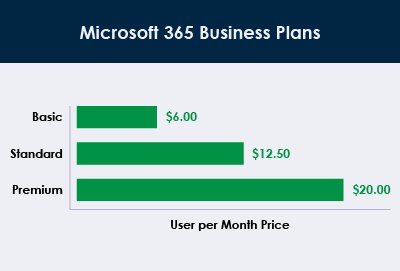Microsoft 365 Product Review For 2021 (Pros & Cons)
Cloud Services | Collaboration Solutions | Microsoft 365
If your business has a network of computing devices, the chances are that you’ve heard of Microsoft 365. But if you’re unsure of which SaaS platform to use for your business, you’ve come to the right place.
It can be tricky to choose an all-encompassing platform for your business, as it’s responsible for collaboration, communication, and office productivity.
At LDI Connect, our cloud services team works with prospects and customers alike to help them determine the right cloud-based solutions for their business.
We understand how confusing it can be to choose the platform for your business, especially when you don’t know what to look for. That’s why our team of cloud experts recommends cloud solutions based on our clients’ current IT and cloud needs.
LDI Connect can supply, install, configure, and support all of the services offered under the Microsoft 365 suite of solutions.
While LDI Connect offers the Microsoft 365 ecosystem to clients, we will be taking an unbiased approach in reviewing Microsoft 365 for this article. We want to help you make the right educated decision for your business. That’s why we’ve covered both the pros and cons of the Microsoft 365 product.
This article will review Microsoft 365 as a product and help you better understand if Microsoft 365 is the right platform for your business to use. After reading this article, you will feel more knowledgeable on what Microsoft 365 is, who it’s for, and the pros and cons of using it.
What Is Microsoft 365 For Business & Who Is It For?
Microsoft 365 is a subscription-based cloud service that ensures you have up-to-date office applications from Microsoft while offering seamless integration of productive work tools.

The Microsoft 365 ecosystem includes numerous office-based applications it offers to enhance productivity. Applications such as Microsoft Word, Microsoft Excel, Microsoft Powerpoint, Microsoft Outlook, and Microsoft SharePoint; all aligned to help you with a wide range of responsibilities.
From creating presentations to email correspondence, to even building out an organized calendar, Microsoft 365 has you covered.
While Microsoft 365 is often utilized by businesses of varying sizes, it is also suitable for single-users and homes.
Let’s take a look at the different subscription plans to expect with Microsoft 365.
What Are The Various Subscription Plans Available for Microsoft 365?
Since we’re covering Microsoft 365 for business, this list outlined below excludes Microsoft 365 Family.
Before diving into what each subscription plan includes, it’s important to note that each plan incorporates web versions of Outlook, Word, Excel, PowerPoint, and OneNote.
Now, let’s dive into each business-related and a few enterprise-related Microsoft 365 plans.

Microsoft 365 Business Basic
Microsoft 365 Business Basic is $6.00 per user for a monthly commitment of $5.00 per user for an annual commitment.
It delivers all key Office 365 applications and includes online data storage, team collaboration solutions, video conference capabilities, and professional email.
Microsoft 365 Business Standard
At $12.50 per user per month, Microsoft 365’s Business Standard is an ideal plan for small businesses.
It includes critical applications such as Exchange, SharePoint, Teams, OneDrive, Yammer, Power Apps, Power Automate.
Microsoft 365 Business Premium
At $20.00 per user per month, Business Premium includes the Business Basic and Business Standard. However, it has additional security and customization features.
For example, with Business Premium, you’re able to:
-
- Protect your business and its data against advanced cyber threats through sophisticated phishing and ransomware protection.
- Authorize access to confidential data using encryption to help keep data from being lost or shared accidentally.
- Protect devices connected to your sensitive information and help keep iOS, Android, Windows, and Mac devices safe and up to date.
Now let’s dive into two significant plans for enterprises.
Microsoft 365 E3
For 32.00 per user, per month, E3 combines best-in-class productivity applications with core security compliance capabilities.
For example, with E3, you’re able to:
-
- Enhance productivity and facilitate a culture of collaboration with integrated experiences.
- Change how you oversee your business while improving customer relationships with connected workflows.
- Secure all information with intuitive security.
Microsoft 365 E5
At 57.00 per user per month, Microsoft 365 E5 includes advanced security, compliance, voice, and analytical capabilities for your enterprise.
For example, with E5, your business is able to:
-
- Integrate and automate security to help stop catastrophic events by extending identity and threat protection.
- Integrate information protection and advanced compliance capabilities to secure and govern data while reducing risks.
- Receive audio conferencing and calling capabilities in the cloud.
- Benefit from Power BI capabilities which help you understand essential business value from your collected data.
What Are The Pros & Cons Of Using Microsoft 365?
With the rise of Software as a Service (SaaS) products, if you’re in the market for a new platform to use for your business, it’s best to understand the good, bad, and ugly before you make a purchase.
Let’s dive into the pros and cons of using Microsoft 365.
PROS
-
-
Email Is Accessible From Anywhere At Any Time
-
Since Microsoft Outlook is hosted on the cloud, users can access their email from anywhere at any time.
Most Microsoft 365 email options do not require an administrator or hosted exchange server, making it more affordable to rely on Microsoft’s cloud-hosted platform, especially if you’re a small-scale business.
-
-
Simple Access To Files
-
Microsoft 365 offers easy access to files. For businesses abiding by a hybrid or remote work model, it’s crucial to have easy access to your data.
Microsoft Office 365 plans provide access to Word, Powerpoint, Excel, and other applications through an online web version of the program, allowing users to access and edit documents from any computing device or web browser.
Mobile applications of the program can be downloaded for the same purpose.
-
-
Cost-Effective
-
Depending on the number of users your office needs of Microsoft 365, the plan can be less expensive when paying for licenses.
The subscription you choose will automatically receive free upgrades every time Microsoft releases a new version.
Additionally, you are only paying for the exact number of resources you are using with paying by the user.
Lastly, it offers flexibility in switching between plans if you need a service that’s not available within your package and reducing the number of services you don’t require to reduce the total cost of the subscription.
-
-
Storage Drive
For Microsoft 365, every user has access to One Drive, which provides up to one terabyte of storage.
While you can pay for additional storage if needed, One Drive helps users share and sync files easily.
-
CONS
-
-
Data Security Risks
-
Like any cloud-based solution, there’s often some risk associated with sharing data to the cloud.
For Microsoft 365, your business’s data would sit on a Microsoft server. While this may be a secure option for many businesses, particular industries such as healthcare have compliances to uphold regulatory constraints. They may require data to be stored on-premises.
While Microsoft does have options for businesses that require more data security, they are often an additional expensive cost.
Microsoft 365 being a SaaS product will mean that your business will require extra cloud security protection against malware and other threats.
-
-
Online Applications May Have Limited Features
-
While Microsoft’s applications can be accessed through a web browser, some limitations may be a setback to your business needs.
For example, Microsoft Excel’s browser version does not allow users to set up data validation in browser workbooks. In another example, Microsoft Word’s browser version does not allow users to access password-protected documents.
While this may not be a huge deterrent for some businesses who wish to use Microsoft 365, the loss of functionality may make working online with these applications difficult.
-
-
Requires Internet Access To Run Effectively
-
Seeing as Microsoft 365 is a cloud-based solution, your business will need to have a stable internet connection for the product to run smoothly.
If your business has faulty internet access, it can disrupt the user’s pursuit of accessing files or emails. This alone can ultimately disrupt work productivity and may increase downtime.
Depending on your business’s needs, one item on this list may affect you more than another.
It comes down to taking stock of your work requirements and if any of the pros or cons outlined above will affect those requirements.
Is Your Business Ready For Microsoft 365?
In summary, the Microsoft 365 product offers a wide range of features that can fit the needs of small, medium, and large-sized businesses. While the worth of the Microsoft 365 product for business cannot be overemphasized enough, it still comes down to the needs and goals of your business.
Particular factors may get in the way of you investing in Microsoft 365 for your business.
For example, suppose your business is looking for a subscription-based product to improve office productivity and help your team stay connected. In that case, Microsoft 365 may be an excellent cloud-based solution for your business.
Suppose your business doesn’t have a reliable internet connection and cannot pay 5 or 6 dollars per user for the baseline subscription plan. In that case, Microsoft 365 may not be the right fit for your business.
At LDI Connect, we cover all productivity, communications, collaboration, and security services bundled in any of the various M365 business license packages.
To learn more about Microsoft’s offerings, read more about the benefits of using Microsoft Teams for your business.